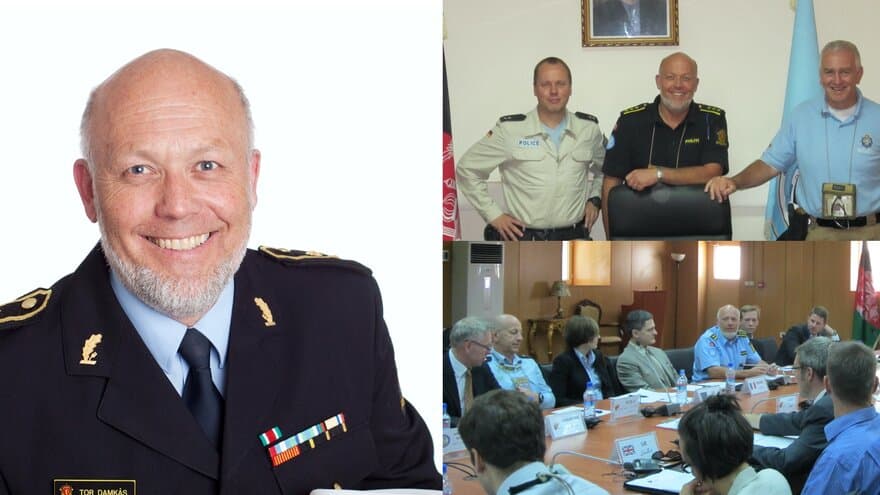We met with Tor Damkås, retired Police Superintendent from the Norwegian Police University College (PHS) in Oslo, who was largely responsible for starting and developing the PEN-Network for the project. We spoke to Tor about how the idea for the network started, how it was created and used during the project, as well as his own personal reflections on the advantages of having a volunteer-based network in the project.
When asked about how the idea of the PEN network was created, he says it originally came from NMBU. In a meeting between the Project Leader, Ingrid Nyborg, and the Deputy Rector at PHS, Tor Tanke Holm, they agreed to apply for the Horizon 2020 funding programme. In the application, he says it was stated very clearly that they sought to engage both practitioners, as well as researchers, in the project.
Tor’s role in the project was to establish this network, and it was important to him that the network consisted of “individuals who had experience and knowledge in policing and peace-keeping operations”. The members also needed to be independent participants, and not represent their respective organizations.
Reflecting on how he found people he could include in the network, Tor stated that he went back to his own personal dairy to get an overview of his own network and who he could possibly reach out to.
“I had been on different missions such as in Bosnia, Sierra Leone, Afghanistan and Ukraine, and then I was also engaged in an international course on police reform for senior police officers”.
Based on his previous professional engagements, he reached out to former colleagues and professional contacts that he thought could be interested in joining the network. He also engaged with his contacts’ own professional networks as well as that of researchers who were involved with the project.
On the advantages of having this network involved in the research project, Tor emphasised the value of having access to the perspective of practitioners:
“We had direct contact with the people who had boots on the ground”. This let practitioners give researchers input, on an individual basis and through the project’s annual meetings. It also allowed the project to include the process from the perspective of the host country in the project. Tor underlines that the network was very helpful in cases where information was not readily available or hard to access because of language barriers. In such cases, Tor explains that the network could help get in contact with the right people who had information and he even states that, in one case, PEN-members helped translate a complete curriculum on community-oriented policing in one of the host-countries.
Tor believes the network lived up to his expectations, as it turned out to be particularly valuable to researchers on the ground doing field work. The advantage of having this network, he says, was that it allowed them to engage international PEN members who had “experience from different geographical locations, who knew which doors to knock on, and how to get access to people that could become useful in the fieldwork”.
As the project ended in 2020, Tor said they have reached out to all the PEN members and thanked them for their involvement in the project, as well as emphasizing what they have done and what the project has achieved. He says there is some continuation in the network and that they would like to stay connected, such as by having online conferences with the network in the future and engaging with, for example, the new ICT4COP Center at NMBU.
They are also planning to have a workshop on community-oriented policing (COP) in Ankara at the Turkish Police Academy later this spring. The goal, he says, is to create a COP network in Turkey that can be utilized both in Turkey and in connection with other states in the region.
Overall, Tor says the most valuable part of the project and having the network was that it had a very flat organizational structure, where everyone in the network could reach out to anyone, “asking for opinions, comments, and input”. As the role of PHS was to solely facilitate the network, Tor says it allowed members of the network to take advantage of the wide access to different knowledge and experiences.
You can read more about the PEN in this article co-written by Tor and ICT4COP-colleagues on the benefits and potential of the network, which was published in 2021 in the Journal of Human Security: “A Bird’s-Eye View from the Field—How a Police Experts Network Can Be an Important Link in Facilitating Sustainable Community-Oriented Policing in Post-Conflict Contexts”
